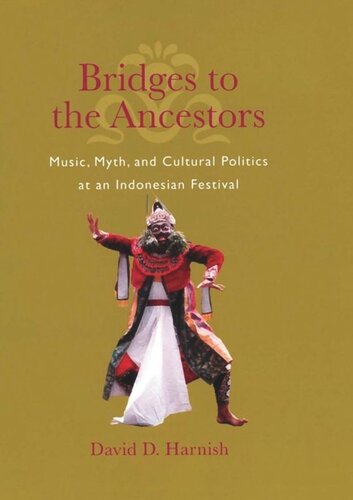

Most ebook files are in PDF format, so you can easily read them using various software such as Foxit Reader or directly on the Google Chrome browser.
Some ebook files are released by publishers in other formats such as .awz, .mobi, .epub, .fb2, etc. You may need to install specific software to read these formats on mobile/PC, such as Calibre.
Please read the tutorial at this link: https://ebookbell.com/faq
We offer FREE conversion to the popular formats you request; however, this may take some time. Therefore, right after payment, please email us, and we will try to provide the service as quickly as possible.
For some exceptional file formats or broken links (if any), please refrain from opening any disputes. Instead, email us first, and we will try to assist within a maximum of 6 hours.
EbookBell Team

4.7
66 reviewsThe spectacular Lingsar festival is held annually at a village temple complex built above the most abundant water springs on the island of Lombok, near Bali. Participants come to the festival not only for the efficacy of its rites but also for its spiritual, social, and musical experience. A nexus of religious, political, artistic, and agrarian interests, the festival also serves to harmonize relations between indigenous Sasak Muslims and migrant Balinese Hindus. Ethnic tensions, however, lie beneath the surface of cooperative behavior, and struggles regularly erupt over which group--Balinese or Sasak--owns the past and dominates the present.
Bridges to the Ancestors is a broad ethnographic study of the festival based on over two decades of research. The work addresses the festival's players, performing arts, rites, and histories, and considers its relationship to the island's sociocultural and political trends. Music, the most public icon of the festival, has been largely responsible for overcoming differences between the island's two ethnic groups. Through the intermingling of Balinese and Sasak musics at the festival, a profound union has been forged, which participants confirm has been the event's primary social role.
Bridges to the Ancestors effectively reveals the Lingsar festival as a site of cultural struggle as the author explores how history, identity, and power are constructed and negotiated. He addresses the fascinating interaction between music and myth and the forces of modernity, globalization, authenticity, tourism, religion, regionalism, and nationalism in maintaining "tradition."